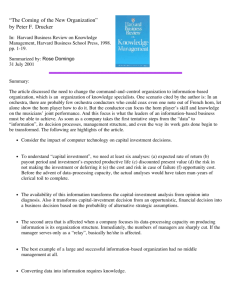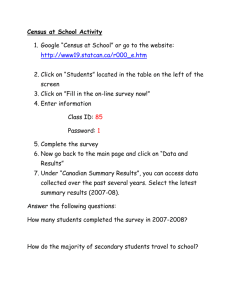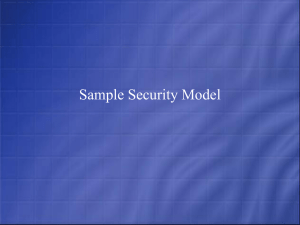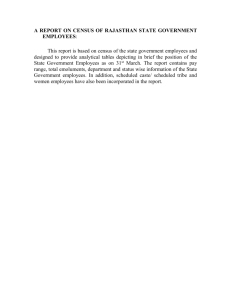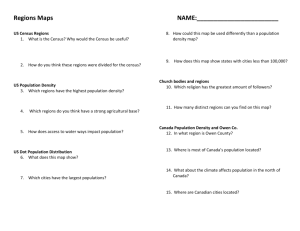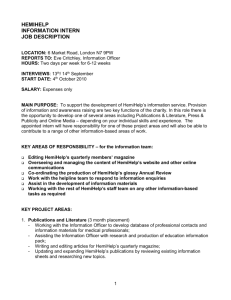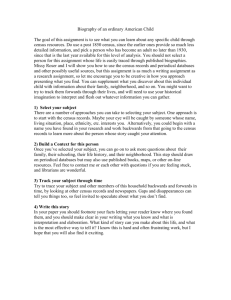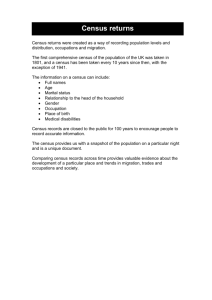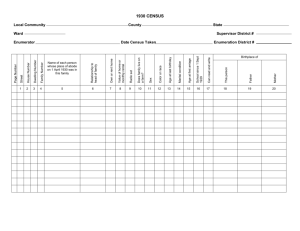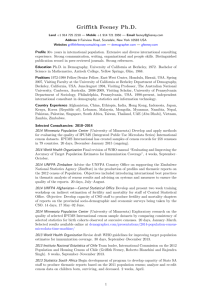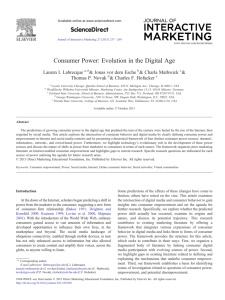The Information-Based Organization
advertisement
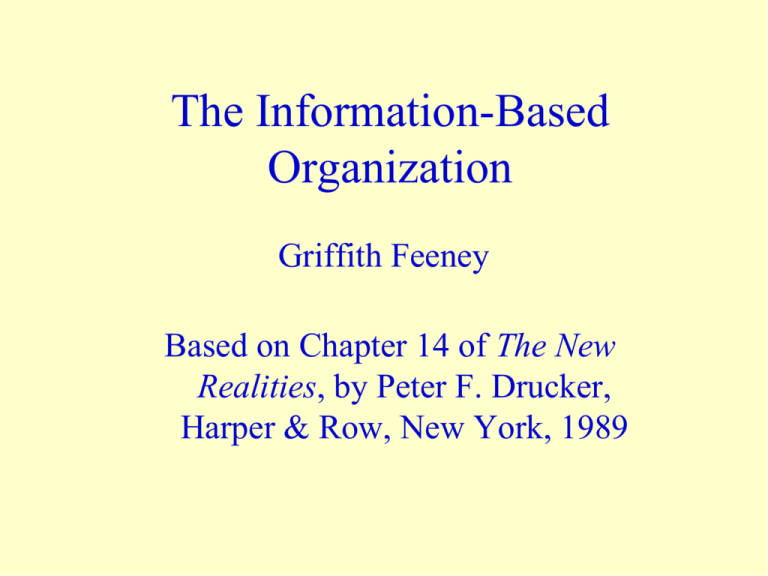
The Information-Based Organization Griffith Feeney Based on Chapter 14 of The New Realities, by Peter F. Drucker, Harper & Row, New York, 1989 Information is ... • data endowed with relevance and purpose • Converting data into information requires knowledge • Knowledge is inherently specialized • The information-based organization requires specialists of many kinds to carry out its mission Appropriate Organization • Existing organizational structures are mostly not appropriate; the appropriate organization is uncertain but ... • We do have useful models: the hospital, the symphony orchestra, and the university • What do lessons do these teach? The irrelevancy of ‘command and control’ model and ... Some Requirements • Information-based organizations require clear, simple, common objectives that translate into specific actions • Knowledge-workers cannot be told how to do their work; they know better than anyone else because they are specialists • Consequently, knowledge workers must take responsibility for their own work Making the Organization Work • Every knowledge-worker must ask: • Who in this organization depends on me for what information? • What information do I need to do my job, to make my contribution, and who can provide it? • Information relationships are often lateral, cross-cutting the hierarchical organization Getting Specific • What information is necessary to plan the content of a population census (forget operations!) • Where does it exist? What is inside the national statistical organization, and where? What is outside, and where? • How to get this information to the census planners who need it? The Presumption • We do not know all we need to know to decide the content of the census • The first task is to assess our ignorance, to sketch the boundaries of what we need to learn • Once we know what we don’t know, we can try to create the necessary knowledge Review of Key Ideas • Information-based organizations depend fundamentally on knowledge workers • Knowledge workers cannot be told what to do, they must be self-controlled • Self-control cannot be achieved without a clear mission and feedback on performance • Knowledge workers need to think through what information they need and what others need from them Questions? Comments? Discussion?

